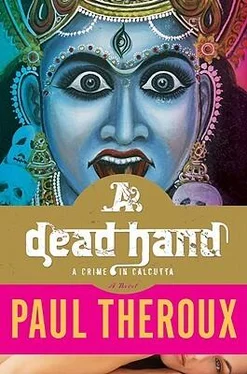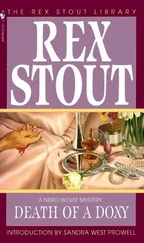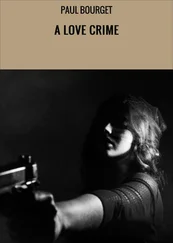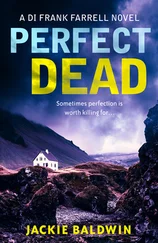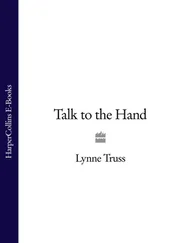Everything had changed. I loved writing about Mrs. Unger. I enjoyed recapturing the pleasure of being with her. I described her lips, the hair that straggled on the nape of her neck and was always the same, uncombable, the fingers that had touched me, the skeletal angles of her jaw and the glow around her eyes. Re-creating her, I was aroused, and the form my arousal took was a visceral happiness.
As an outsider, the traveling writer sees only surfaces. I was a recommender of hotels, a sampler of meals, a tester of comforts. I had described disturbance before, and the derangement of the world, the appearances of places I'd skimmed across. But I had never known a whole worthy person; I had always doubted that such a person existed. Everyone I knew was just getting by. They were like me, tenuously attached to chaotic societies, but we were parasites, living life outside, in bars, in hotel lobbies, hiding in big cities or at the edges of villages, at the beach, on the verandah with our feet up, calling for another drink, more peanuts. Lives with no further purpose than survival and sex. So that was my subject. I had no idea where I was going and neither did my friends. Writing about these uncertain people was a way of writing about myself.
Now I had Mrs. Unger — her energy, her certainty and sensuality, her sense of direction, her self-esteem. Unlike the other Americans I knew, she never dramatized her being in India. I had never met anyone with that amount of restraint. She didn't boast about her charity; she was generous without being conspicuous. She was content. Writing about her lifted my spirits. I was back in the world again. I had a wonderful reason for staying on in Calcutta — no need to slip away. I was at last proud of what I was doing, writing a true account of a meditation on virtue.
Through the dead hand, as if this withered yellow thing had pointed the way, I had discovered something new and unanticipated. I wrote fifty or sixty pages. No one had ever written about anyone like her. She was not a sentimental do-gooder wishing herself on the poor, or helping old people to die, praising their suffering and their poverty, but rather a glamorous woman quietly improving the lives of lost children.
Howard called: "You still here?" Parvati called: "What are you up to?" I didn't say. "A Dead Hand" was my secret. And I had much more to write — I hadn't written about Theroux's intrusion, the train trip, "I'm black," Assam, Nagapatti. All that lay ahead, so much experience to draw upon. I was absorbed in this long story, and I saw that, though happiness was the rarest of subjects, happiness had liberated me. I thought of nothing else but doing full justice to Mrs. Unger and my luck in having opened the wrong door and met her.
I was so concentrated in this work that I forgot everything else. I made no plans. I saw Mrs. Unger a few times, always quietly, always in the incense-filled vault of the Lodge. She massaged me with the tantric pressure of prolonged and unexpected touching, adoration of the fingertips — and all of it these days was a further lesson in how I was to touch her. The best of tantra, taking turns.
And, after such caresses, I always went back to my work refreshed.
This was about two weeks of sustained creativity, the happiest period of my writing life I had ever known. And it ended as suddenly as it began.
"Packet for you, sir," Ramesh Datta, the desk clerk, said one day as I went down to lunch after a morning's work, just as many weeks before he had said, "Letter for you, sir."
He said it casually, and because of that I didn't take it seriously. Something from Parvati was what I thought, with a kind of irritation — a very good poem. I'd have to read it and respond.
But it wasn't that at all. It was something else entirely, and it reminded me of everything I'd forgotten.

MY NAME WAS NOWHERE on the little parcel, which was square, too large to fit into my pocket, and thick, yet light, taped on two sides. It was about the size of a sandwich and just as soft. Indian paper is fragile — the wrapper was already bruised and torn at one corner. No stamp, only HOTEL HASTINGS in blue ballpoint in block letters, and slightly grubby, as though someone had carried it by hand. I imagined a boy clutching it in sweaty fingers. Tell them it's for the ferringhi.
I was reminded of Mrs. Unger's letter, the fat envelope that had started me down this road. Had it not been for that letter, I'd be far from Calcutta now. A letter without a stamp seemed to me portentous. I could not imagine what was in this parcel, but I knew it mattered.
"Who brought this?"
"Runner, sir. Small boy."
I did not want to seem too inquisitive. I suspected it was something to be kept secret. I didn't want anyone to know about my private life, my passionate attachment to Mrs. Unger, my resumption of writing. At that point, with the unopened parcel on the lunch table beside my plate, I still believed that my writing life had been revived, that Mrs. Unger was a goddess who had restored my creative vitality.
Although I longed to open the thing, I resisted, fearing witnesses. What if it was bad news? Its unusual size and shape somewhat alarmed me. I was afraid it might contain another melancholy body part, something small and withered. I finished my lunch, pretending to be casual, then I shoved my chair back, stepped outside onto the verandah, and glancing behind me, seeing no one, picked it open.
As the brittle paper wrapper disintegrated in my hand, I held its contents, a square of carpet. It was like a swatch, a store sample, but roughly cut, velvety with a floral design and part of a margin on one side, tightly woven and dusty on the underside. No other obvious markings, though the pattern on the upper side was distinct: green strands, yellow petals, on a deep red background. It had been coarsely scissored, like a bite out of a big rug.
No message. I sat staring at it. My first thought was to search for bloodstains or any identifying marks. I found nothing; even the pattern was unrevealing, not to say banal. But as an unexpected chunk of material, it was so odd as to seem meaningful — that is, a deliberate riddle. I could not at first imagine who'd sent it, but I related it to what I'd been told by Mina at the cemetery: Carpet was parceled. Body was inside.
I sat back and sighed. This was like blunt trauma, a colossal interruption of my writing. My work lay on the table. I knew that I could not return to it until I had solved the problem.
That was the strangest thing of all. During the trip to Assam and in writing about Mrs. Unger, I hadn't thought about Rajat and the hotel, the discovery of the corpse, his running away, and how from the very beginning I'd been asked by Mrs. Unger to solve this mystery and vindicate Rajat. So overwhelmed had I been by her that I'd neglected to follow up on the information I'd found: the rudeness of the Ananda's manager, the details that Mina Jagtap had given me.
How did this parcel find me? The thought fluttered through my mind. But it was naïve of me to wonder. Calcutta was a city almost without tourists. I had been here more than two months, walking the streets and openly asking questions. Though there must have been many foreigners in the city, it sometimes seemed that I was one of about a dozen resident ferringhis. I was easy to spot. That explained how the parcel found me, but not why.
I immediately suspected Mina. Who else? She knew I was inquiring, she'd been fired from the Ananda, so she had a reason to help me. No note: the swatch was self-explanatory — cut from a carpet, probably the one that had held the body.
Читать дальше
